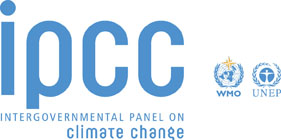Global warming will cause widespread conflict, displace millions of people and devastate the global economy

Leaked draft report from IPCC is most comprehensive investigation into impact of climate change ever undertaken
Climate change will displace hundreds of millions of people by the end of this century, increasing the risk of violent conflict and wiping trillions of dollars off the global economy, a forthcoming UN report will warn.
The second of three publications by the UN’s Intergovernmental Panel on Climate Change (IPCC), due to be made public at the end of this month, is the most comprehensive investigation into the impact of climate change ever undertaken.
A draft of the final version reported by the UK’s Independent says the warming climate will place the world under enormous strain, forcing mass migration, especially in Asia, and increasing the risk of violent conflict.
The report predicts that climate change will reduce median crop yields by 2 per cent per decade for the rest of the century – at a time of rapidly growing demand for food. This will in turn push up malnutrition in children by about a fifth, it predicts.
The report also forecasts that the warming climate will take its toll on human health, pushing up the number of intense heatwaves and fires and increasing the risk from food and water-borne diseases.
The report predicts that by the end of the century "hundreds of millions of people will be affected by coastal flooding and displaced due to land loss". The majority affected will be in East Asia, South-east Asia and South Asia. Rising sea levels mean coastal systems and low-lying areas will increasingly experience submergence, coastal flooding and coastal erosion.
Relatively low local temperature increases of 1C or more above pre-industralised levels are projected to "negatively impact" yields of major crops such as wheat, rice and maize in tropical and temperate regions. The report forecasts that climate change will reduce median yields by up to 2 per cent per decade for the rest of the century – against a backdrop of rising demand that is set to increase by 14 per cent per decade until 2050.
A global mean temperature increase of 2.5C above pre-industrial levels may lead to global aggregate economic losses of between 0.2 and 2.0 per cent, the report warns. Global GDP was $71.8trn (£43.1trn) in 2012, meaning a 2 per cent reduction would wipe $1.4trn off the world’s economic output that year.
Until mid-century, climate change will impact human health mainly by exacerbating problems that already exist, the report says. Climate change will lead to increases in ill-health in many regions, with examples including a greater likelihood of injury, disease and death due to more intense heatwaves and fires; increased likelihood of under-nutrition; and increased risks from food and water-borne diseases. Without accelerated investment in planned adaptations, climate change by 2050 would increase the number of undernourished children under the age of five by 20-25 million globally, or by 17-22 per cent, it says.
Climate change over the 21st century will have a significant impact on forms of migration that compromise human security, the report states. For example, it indirectly increases the risks from violent conflict in the form of civil war, inter-group violence and violent protests by exacerbating well-established drivers of these conflicts such as poverty and economic shocks.
Small-island states and other places highly vulnerable to sea-level rise face major challenges to their territorial integrity. Some "transboundary" impacts of climate change, such as changes in sea ice, shared water resources and migration of fish stocks have the potential to increase rivalry among states.
The draft of the report says "freshwater-related risks of climate change increase significantly with increasing greenhouse gas emissions". It finds that climate change will "reduce renewable surface water and groundwater resources significantly in most dry subtropical regions", exacerbating the competition for water. Terrestrial and freshwater species will also face an increased extinction risk under projected climate change during and beyond the 21st century.
The IPCC also warns of an increasing risk to health across Europe from rising air pollution.
Source: The Independent
Valere Tjolle
Green tourism growth agenda report special offer HERE
Latest Sustainable Tourism Report gets Rave Reviews, GET FREE EXECUTIVE SUMMARY AND REVIEW OFFER HERE
 United Kingdom
United Kingdom United States
United States Asia Pacific
Asia Pacific












































Dozens fall ill in P&O Cruises ship outbreak
Turkish Airlines flight in emergency landing after pilot dies
Boy falls to death on cruise ship
Unexpected wave rocks cruise ship
Woman dies after going overboard in English Channel